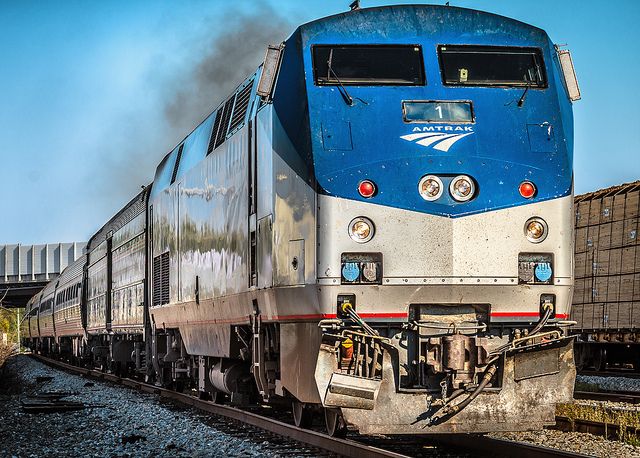
Amtrak employees have apparently discovered time travel.
At least, that’s one explanation for the report released by the Amtrak Office of Inspector General (AOIG) last week that discovered employees are claiming to have worked upwards of 47-hour days. The report found that discrepancies in employees’ reported hours are largely the result of the increasingly complicated and intricate union agreements Amtrak must enter into every year. The analysis embodied six years of documented waste and abuse stemming from fraudulent and inaccurate timesheets.
Last year, Amtrak entered into 23 separate bargaining agreements with the 14 different unions that cover the train service’s 19,300 employees. Each agreement contains complex and specific rules for calculating an employee’s hours and wages. Under the agreements, Amtrak uses six different timekeeping systems to process the 4.5 million daily timesheets and calculate pay.
In addition to the eyebrow-raising work day claims, the investigation found instances of employees who reported to have worked over 100-consecutive days and who recorded working 957 weeks with only overtime hours and no regular hours. The AIOG report found that employees claimed to work 2,381 weeks with at least 40 overtime hours on top of their regular 40 hours.
The federally-owned rail line spends $1.2 billion on wages as the result of fraudulent and inaccurate timesheet data. Requests for overtime-pay in 2014 totaled $199 million; roughly 25 percent of regular wages paid. Nearly a third of Amtrak’s budget goes to labor costs for employees under the union agreements that are making it difficult for employees to accurately report their hours.
The AOIG found that employees belonging to the Amtrak Service Workers Council were responsible for repeatedly reporting the most overtime hours without regular hours, with the highest claim at 769 hours over nine weeks. Employees covered under the Brotherhood of Railway Signalmen and the Brotherhood of Maintenance of Way Employees had the highest instances of reporting overtime hours that totaled more than 100 percent of their regular hours.
The AOIG’s investigation into wasteful spending at the hands of the unions came on the heels of calls to increase Amtrak’s funding after May’s deadly train derailment. The report was released on the same day that Sens. Corey Booker (D-N.J.) and Roger Wicker (R-Miss.) introduced S. 1626, a bill that would increase Amtrak’s funding to $9 billion over the next four years. The Railroad Reform, Enhancement, and Efficiency Act calls for $1.4 billion more than its House counterpart, but this report shows that the last thing Amtrak needs is more taxpayer money.
If Amtrak wants more money to improve its safety and increase its efficiency, maybe it should start with the millions of dollars that are being wasted on labor.

